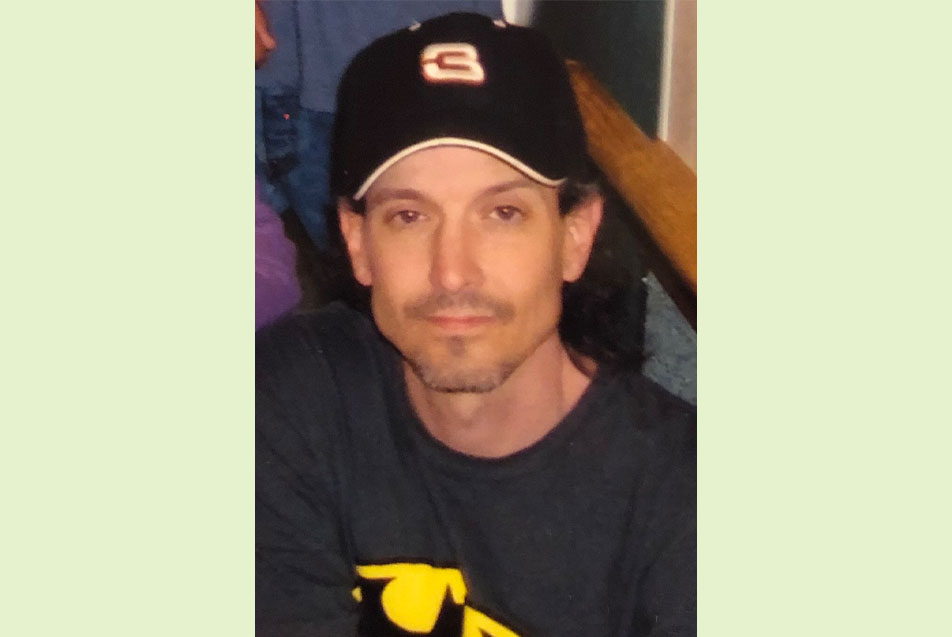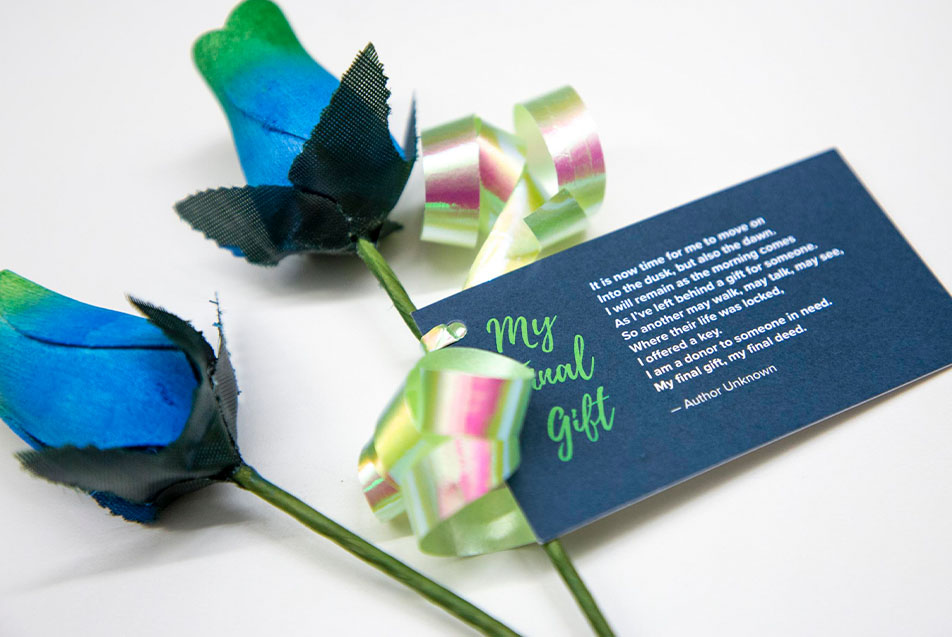
In spring 2022, Jim Sluss, a Wabash resident, fell from a ladder 10-15 feet off the ground while trimming a tree. “His girlfriend called and told me something wasn’t right,” Jim’s brother, Clint Sluss, recalled. “He was bleeding from his ears. She called an ambulance and, by the time I got to Parkview Wabash [Hospital], they were airlifting him to [Parkview Regional Medical Center in] Fort Wayne.”
From there, Jim’s condition declined quickly. While initial evaluations showed a small brain bleed, he deteriorated rapidly and was taken in for emergency surgery.
Stephanie Falatko, DO, PPG – Neurosurgery, who performed Jim’s surgery, and Joseph Muller MD, PPG - Trauma & Acute Care Surgery, who cared for Jim during his treatment journey, were optimistic, but brain damage can mean an unpredictable prognosis. As his healthcare decision maker, Clint wanted to make sure he could speak to Jim’s wishes. “Somebody asked me if he was an organ donor, and I wasn’t sure,” Clint said. “I knew I was, and our mom was, but I couldn’t remember if Jim was. I went to the [Bureau of Motor Vehicles] and they gave me the number for the Indiana Donor Network. They were able to check his driver’s license number and let me know that he was an organ donor.”
Sadly, Jim suffered irreversible brain damage as a result of his fall. “It wasn’t to the extent that it impacted his bodily functions. He was able to breathe on his own and his heart was normal, but he couldn’t wake up. And if he did, he likely wouldn’t be able to walk or talk. Jimmy was so active, I knew he wouldn’t want that,” Clint said.
Clint was committed to making sure that Jim’s desire to help others after his passing was realized. “Jimmy was always doing things for other people,” Clint said of his brother. “Always looking out for people.”
He worked closely with Parkview staff and the Indiana Donor Network (IDN) to the necessary arrangements for Jim to be a donor after cardiac death (DCD). This is a donor who has suffered devastating and irreversible brain injury and may be near death, but does not meet formal brain death criteria. In these circumstances, the patient is taken into an operating room and life-saving apparatus is removed. If the patient passes on within 90 minutes, their organs can be recovered for donation. “They don’t like for people to be on life support for more than a few weeks,” Clint said. “I wanted to be Jimmy’s advocate. We set everything up knowing that if he woke up, we could change the plan.”
After an evaluation, Clint knew that there was a good chance that Jim would not pass within the designated time, but he wanted to try. He walked alongside his brother as staff observed an honor walk in the hallway at PRMC and sat with him in the OR. “They never know. A patient can go as soon as they stop life preserving measures or make it through.” In Jim’s case, he survived for an additional two and a half weeks after the DCD attempt.
“We moved him into hospice at [Parkview Hospital] Randallia for a week and then we asked that he be moved back to Parkview Wabash so everybody could see him.” Jim passed away on April 6, 2022.
He was able to give the gift of tissue donation.
Encouraging others to give the gift of life
Small towns are special places, where everyone seems to know everyone. This is true for Wabash resident Kristin Kroft, BSN, RN, in-house clinical coordinator, Indiana Donor Network. “I got a call from my mom,” she recalled. “She saw Jim’s obituary and wanted to make sure I read it.”
In addition to sharing Jim’s favorite hobbies and collectibles, achievements and loved ones, the family also included, “Jimmy was an organ donor … The family asks if you are not an organ donor, consider being one.”
“We wanted to put that in there because people may not be donors or they might be thinking about it,” Clint said. “I would encourage everybody to do it.”
It was a message that touched Kristin, who works to promote and coordinate these gifts daily. “I love that they included that, and that they had such a positive experience,” she said. “I’m from Wabash, and this was such a big deal. Everyone was talking about it.”
With the Sluss family’s permission, the Indiana Donor Network’s community development team had the Donor Honor Guard attend Jim’s service. Through this new offering, a volunteer attends the funeral, reads a poem and presents the family with a wooden rose to honor the donor hero.

“We could not have supported this patient and his family without the support from the hospital staff,” Kristin said. “We are so grateful for these donation advocates.”
Though the loss of his brother has been difficult to navigate, Clint is happy that Jimmy was able to be a donor hero. “We know we can’t take it with us, right? If we can help somebody, we should. Always.”
Since 1988, 15,851 lifesaving organ transplants have been performed in Indiana. According to the IDN, there are currently 1,189 Hoosiers on the waiting list for an organ transplant. To learn more about becoming an organ donor, visit donatelifeindiana.org.